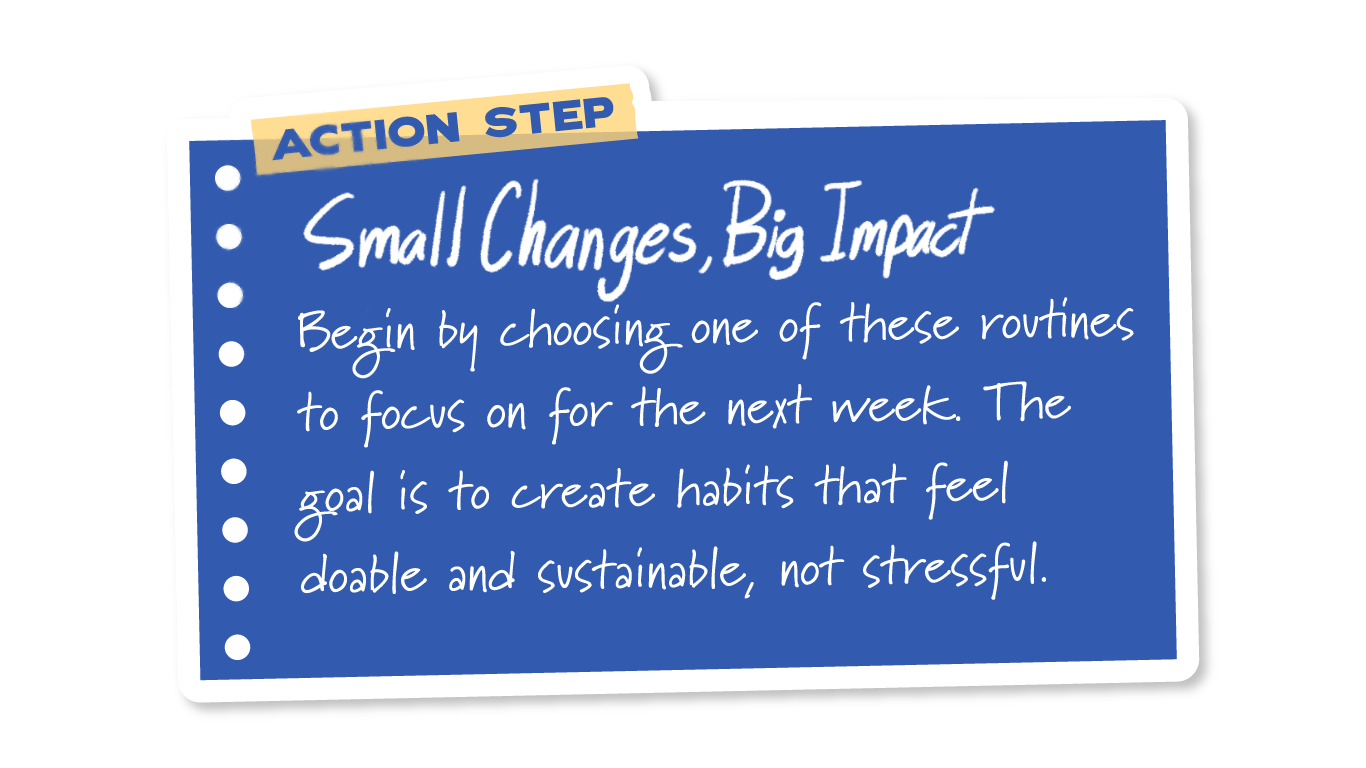

Managing diabetes isn’t just about what happens during the day. What you do in the evening hours can have a powerful impact on your overnight glucose levels, energy for the next day, and long-term metabolic health. Building supportive habits into your evening routine can help reset your body and better regulate your blood sugar overnight while you sleep.
Here are three simple but powerful evening routines designed to help people with diabetes take control of their health, one night at a time.
After dinner, the temptation to collapse on the couch is real, especially after a long day, but your blood sugar will thank you for just 10–20 minutes of gentle movement.
Post-meal movement helps muscles absorb glucose more efficiently, reducing the post-dinner blood sugar spike. Even light walking can significantly improve insulin sensitivity and help stabilize blood glucose overnight.
Sleep is one of the most underrated tools for managing blood sugar. Late-night screen time can disrupt melatonin production, delay sleep onset, and increase nighttime glucose levels though.
People with diabetes who don’t get enough restful sleep are more likely to experience insulin resistance and elevated morning glucose levels. A calming bedtime routine signals to your body that it’s time to wind down and helps stabilize your overnight blood glucose patterns.
Evenings are a great time to mentally reset. Chronic stress is closely tied to elevated cortisol (the “stress hormone”) and higher blood sugar levels, so finding a nightly way to process the day and calm the nervous system can lead to better metabolic control.
Stress hormones like cortisol can keep blood sugar elevated overnight. A short period of intentional reflection or relaxation helps the body shift into a restful state, supporting better glucose balance.
You don’t need to overhaul your entire night to start seeing benefits. Small, intentional actions in the evening can help reset your body, support healthier glucose patterns, and set you up for success the next day.
